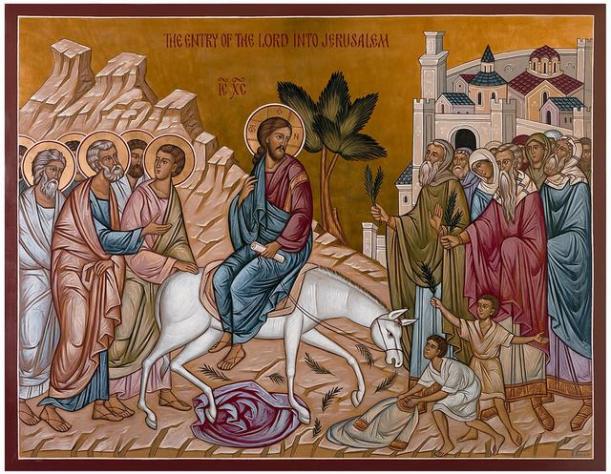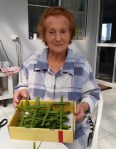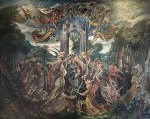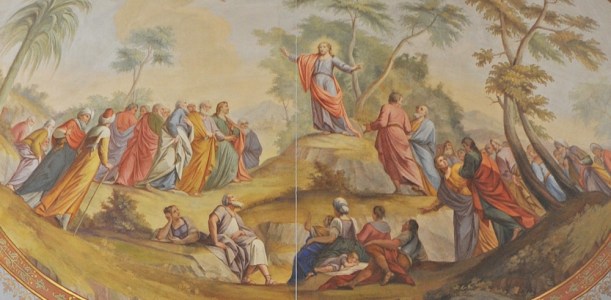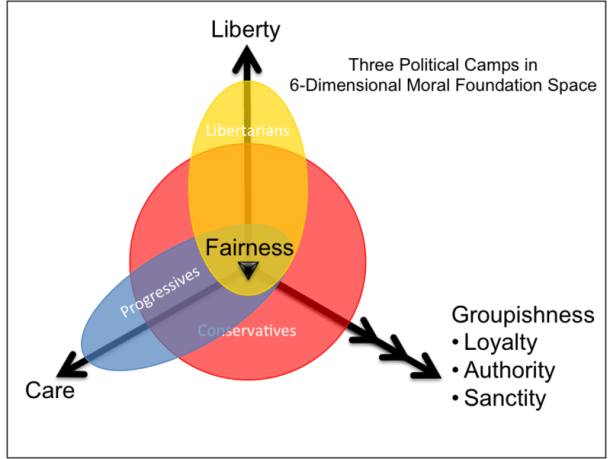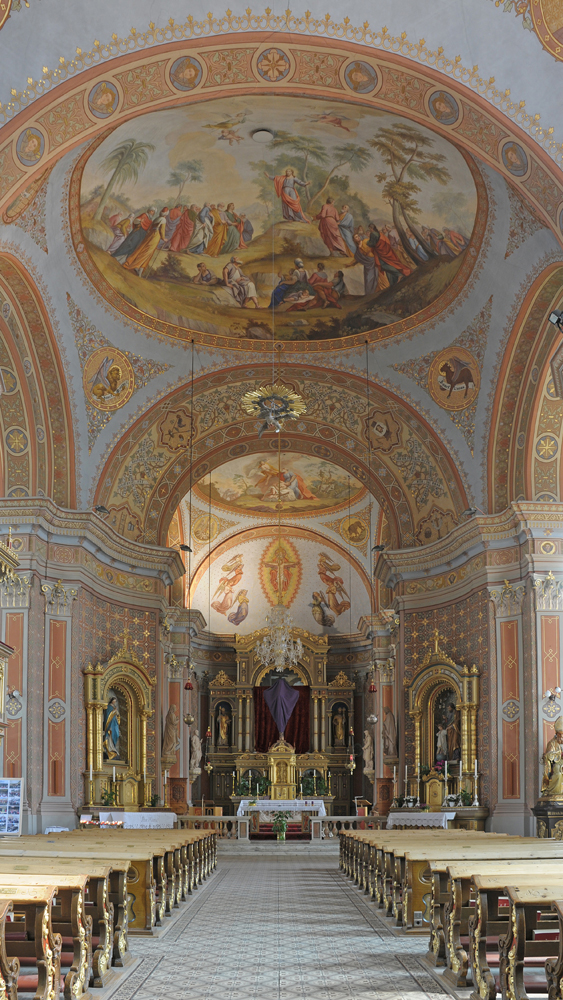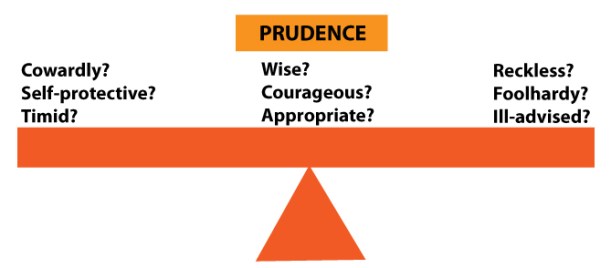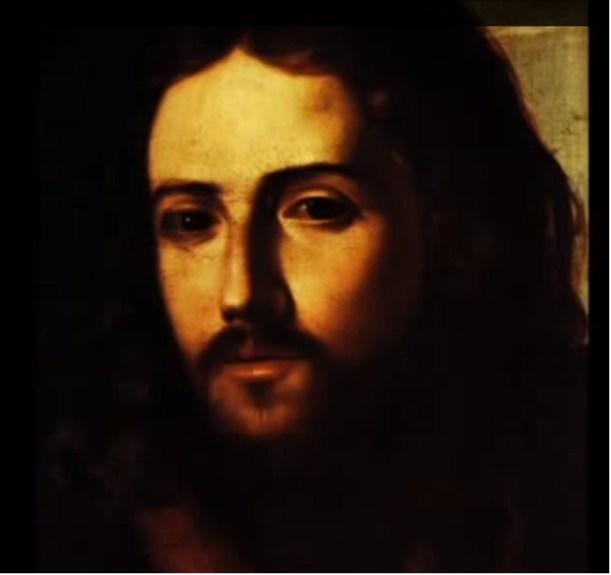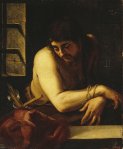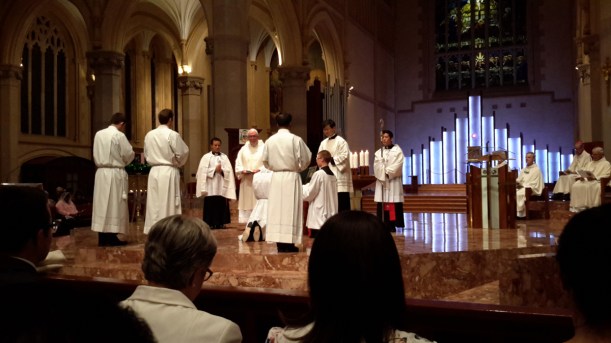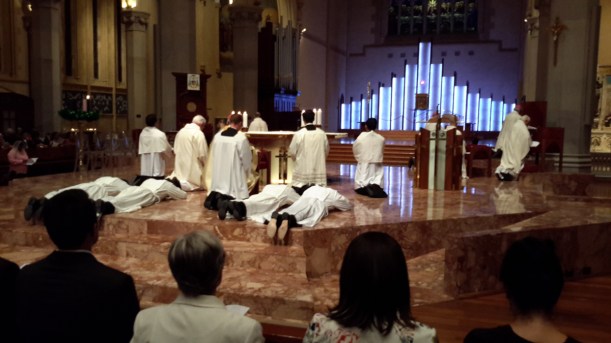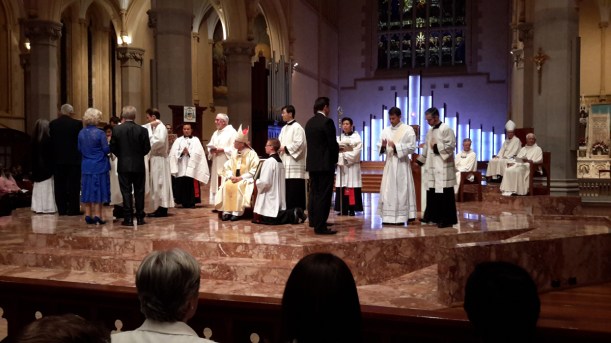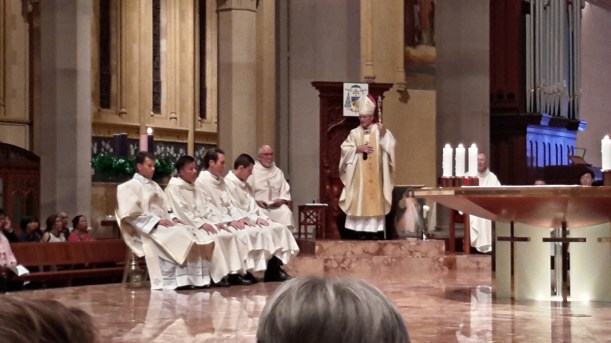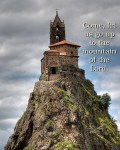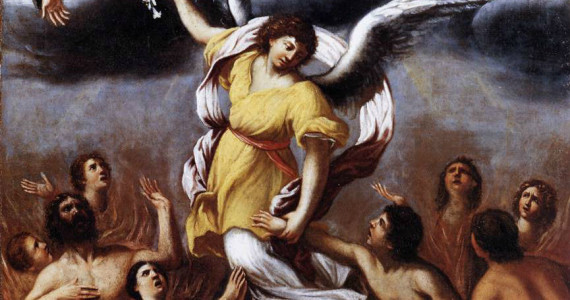
Chapelle Saint Michel d’Aiguilhe, (Chapel of St Michael of the Needle), Le Puy-en-Velay, Auvergne, France.
Last week I said I would talk more about how God speaks to us. This is one of the fascinating aspects of Christianity, because it is primarily in Christianity (and to some extent Judaism) that God presents Himself to us as a loving Father, who pays us the unexpected compliment of desiring communion with us, his children.
Once, we dive into Christianity with minds and hearts obedient and open to receiving, then God can start having a conversation with us. ‘Conversation’ is my word of choice, because it conveys better the trust and openness required for spiritual progress. Prayer is much more than petitioning for things. That conflicted genius, Oscar Wilde, once said: “Prayer must never be answered: if it is, it ceases to be prayer and becomes correspondence.” No doubt this facetiousness was Wilde enjoying the sound of his own voice. For my part, prayer actually is largely correspondence: I like to write down my prayers, often in front of The Blessed Sacrament, and re-read them a year later to see how God has directed me. As I get older, I am increasingly on the receiving end of an impression that God is steering me almost despite myself. Perhaps Wilde was alluding to the fact that prayer is not an activity directed at someone who is an equal, but rather someone infinitely higher than ourselves, whose ways are not our ways.
Often God’s promptings come in the form of a ‘still, small voice’. I’m not talking about the usual stream of consciousness that we all experience as a background to our thoughts; neither am I talking about a voice that seems to come from some other, as in schizophrenia, but rather an inner suggestion which comes with a certain insistence and often makes me respond, in turn, ‘Oh, that’s just ridiculous!’ to, eventually, ‘Well, if you think that’s possible, maybe I should try it and see where it leads.’
It is this ongoing conversation with a loving Father that helps me navigate through my day. Sometimes He answers my prayers before they’ve even arrived fully formed on my lips. Yet when the answers come, I am struck by how appropriate they are to what I might have prayed if only I had got around to it. Just this week, by way of a small example, I have been thinking about my misgivings concerning a study we are about to do at Bible Study on Prayer and Prosperity, and God has answered my concerns with a randomly selected podcast from John Bergsma on “The Upside-Down Kingdom”.
Another incident this week seemed a clear example of a ‘steering’. On Friday, I went to Adoration at St Andrew’s Church as usual between 3 and 4 p.m. I was all set to leave, but everyone else had made off and I was the only one left. Fortunately I wasn’t in a hurry – I had had some space freed up by what I thought was my decision (and now believe was a prompting from God) on the previous day to take advantage of a free offer and do my shopping online. Just as well I stayed, for suddenly the church was invaded by a riot of St Vincent de Paul workers, unloading 43 newly-packed Christmas hampers for the needy. I’m sure they were doing the Lord’s work, but they were completely oblivious to the presence of Christ exposed on the altar, and chattered in loud voices as they debated whether they should store the hampers in this corner or over there, with one woman even wanting to walk across the sanctuary. Suddenly, I felt as if Jesus (on the altar) and I were two people in possession of a secret: and the secret was that the Lord of the Universe was physically present in the room and no-one knew it! It was as if the Queen of England had arrived incognito to dinner, and everyone at the table thought she was the woman brought in to do the washing up. Strangely, this experience gave me a heightened awareness of Jesus’ real presence in the Monstrance, perhaps in the same way that one becomes even more convinced of the Divinity of Christ when a stupid or thoughtless person uses His name with great disrespect. I spent the rest of my time at Adoration just enjoying the Companionship of the Holy One and not leaving him alone and disregarded on the altar.
Then there’s the sort of prayer that is ‘asking for stuff’. Well, God is such a loving and trustworthy Father that he will not give us anything that isn’t good for us (unless, paradoxically, he wants to teach us that it’s not good for us). (He has done this a few times in my life! Ouch!) Very often, God doesn’t give us what we ask for straight away. Often we get an answer only after quite a journey of improvement. This is one of the reasons I like praying to ‘Our Lady, Undoer of Knots’. She helps us undo one snag at a time. I had quite a dramatic demonstration of this when I was praying for reconciliation in the family of a Christian couple I know whose son was refusing to talk to them. Now, the father was actually someone who had divorced and remarried (something the Lord clearly calls adultery). Anyway, when I took this situation to Our Lady, Undoer of Knots, the first thing that happened (in the same week!) was that the father’s first wife died suddenly. It seemed to me that what God was saying to him was, ‘Your adulterous situation is blocking your prayers for reconciliation. Perhaps now you can have another look at what you did, and first come to me with a repentant heart before you pray about your son.’ Interestingly, it was at the first wife’s funeral that the opportunity arose for this family to resume some conversation with each other, and things have been moving along, knot by knot, ever since.
For a more dramatic example of God’s roundabout methods of answering prayer, let’s go back to Oscar Wilde. His poem E. tenebris was written in 1881, when he was only 27, long before his troubles and his trial.
Come down, O Christ, and help me! reach thy hand
For I am drowning in a stormier sea
Than Simon on thy lake of Galilee:
The wineof life is spilt upon the sand,
My heart is as some famine-murdered land
Whence all good things have perished utterly,
And well I know my soul in Hell must lie
If I this night before God’s throne should stand.
‘He sleeps perchance, or rideth to the chase,
Like Baal, when his prophets howled that name
From morn to noon on Carmel’s smitten height.’
Nay, peace, I shall behold before the night,
The feet of brass, the robe more white than flame,
The wounded hands, the weary human face.
Sure enough, if this was a prayer, God took Wilde seriously, and after a tortuous journey involving his trial, imprisonment, exile in France, impoverishment and finally being struck down with meningitis, Wilde came back 19 years later to the faith he had toyed with throughout his life. In the words of the Passionist priest, Father Cuthbert Dunne, who attended him on his deathbed,
As the voiture rolled through the dark streets that wintry night, the sad story of Oscar Wilde was in part repeated to me… Robert Ross knelt by the bedside, assisting me as best he could while I administered conditional baptism, and afterwards answering the responses while I gave Extreme Unction to the prostrate man and recited the prayers for the dying. As the man was in a semi-comatose condition, I did not venture to administer the Holy Viaticum; still I must add that he could be roused and was roused from this state in my presence. When roused, he gave signs of being inwardly conscious… Indeed I was fully satisfied that he understood me when told that I was about to receive him into the Catholic Church and gave him the Last Sacraments… And when I repeated close to his ear the Holy Names, the Acts of Contrition, Faith, Hope and Charity, with acts of humble resignation to the Will of God, he tried all through to say the words after me. (Wikipedia)
How wonderful are the words of Isaiah in today’s first reading, for approaching prayer according to the heart of God:
Come, let us go up to the mountain of the Lord,
to the Temple of the God of Jacob
that he may teach us his ways
so that we may walk in his paths …
Today’s readings
Word format: year-a-advent-first-sunday-2016
Pdf format: year-a-advent-first-sunday-2016
